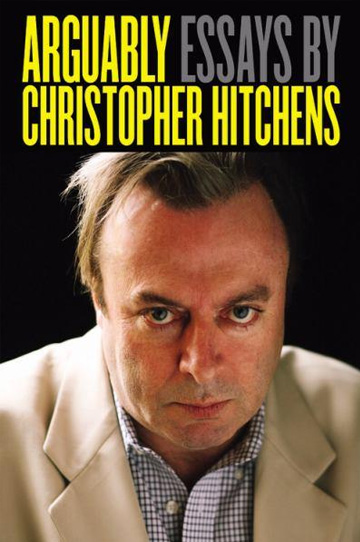
A Singular Voice
October 1, 2011 | Wilson Quarterly
For years it has been easy to take Christopher Hitchens for granted, and now we are losing him. The incomparable British polemicist, contrarian, essayist, bon vivant, and bullhorn of the anti-totalitarian left has advanced throat cancer, and may have won his last motion in the debating hall and blown his last smoke cloud into the face of tyranny. Fortunately for his readers, Hitchens’s voice is not yet silenced. Arguably is a massive, engrossing collection of essays produced over the past 10 years. Like his brilliant memoir of 2010, Hitch-22, it reminds us of all we stand to lose.
Hitchens made himself somewhat tedious from about 2003 to 2007 with his relentless defense of the Iraq war and his apparently spiteful flirtation with conservatism. Arguably covers other ground. Those familiar with Hitchens only from his pugnacious television appearances and his Fighting Words column in Slate magazine will benefit from exposure to his literary side, especially his splendid review essays in The Atlantic. For those who like a little splatter, he can be just as brutal panning a book as attacking an apologist for fascism. He writes that, in composing the 2006 novel Terrorist, John Updike gives “the impression of someone who has been keeping up with the ‘Inside Radical Islam’ features in something like Newsweek,” producing “one of the worst pieces of writing from any grownup source since the events” of 9/11.
The essays on literature and literary biography are erudite and often very funny. Here is a précis of the poet Philip Larkin’s libido: “Larkin may not have been highly sexed in the conventional sense, but he was a heroic consumer of pornography and amateur composer of sadomasochistic reveries, which he often shared with his worldly friends Robert Conquest and Kingsley Amis.” Perhaps nothing recommends Hitchens more than his taste in literature. He returns again and again to Auden, Waugh, Nabokov, and Bellow. If only more of our political writers read such fine stuff between columns.
A master of circumlocution, Hitchens writes with a spontaneous, understated, digressive style, orbiting a target with asides and allusions until it is all but lost from sight. Then, like Muhammad Ali, he suddenly stops dancing and punches with his whole arm. Two pieces in Arguably exemplify this pattern: one on Gore Vidal (of the far left) and one on Patrick Buchanan (of the far right). At times all the ironical, wordy sentences and name-dropping can feel like obfuscation, as when Hitchens smirkingly floats this judgment of Hungarian-born writer Arthur Koestler: “It has been plausibly alleged that in his compulsive seductions—of Simone de Beauvoir, for one—he did not always stop quite short of physical coercion.” Well, did he commit rape or not? But more often, Hitchens’s luminous style and his development of an argument thrill. In an age of sound bites delivered to yawning members of mostly empty chambers, he actually persuades his listeners to change their minds.
This is particularly the case at the intersection of literature and politics, Hitchens’s natural home. Two themes preoccupy him: solidarity and totalitarianism. The former he prizes from his early years on the Trotskyite left; it manifests itself in an honor-bound and borderline-violent refusal to unlink arms with old comrades in places such as Kurdistan, Iran, and Cyprus. The loathing of totalitarianism in all forms comes from the right half of the Left—the territory of George Orwell, Hitchens’s well-chosen hero. (Few could have predicted that a writer as verbose as Hitchens would champion the master of the 12-word, comma-less sentence.) No one writing today beats Hitchens in crushing an argument of moral equivalency between Nazi Germany and Allied Britain, say, or between terrorists who kill as many innocents as possible and American troops who try to avoid civilian casualties. In this regard it must be said that even though his Saddam-loathing case for war in Iraq was not quite persuasive, it was by far the most persuasive case on offer. He waited a lifetime for his Iraq—a chance, like the Spanish Civil War for Orwell, to stand firmly against the forces of totalitarianism, alone if necessary. Reading Hitchens today, one clearly sees that he would do it the same way again.
At one point he quotes a novelist’s description of a newspaper hack who “possessed that opportune facility for turning out several thousand words on any subject whatever at the shortest possible notice.” Although Hitchens does not generally shy away from boasting, he is too polite to claim this mantle for himself. It is his. Reading him is like riding in a luxurious sedan upholstered in leather and cornering sharply: It does not really matter where we go because we will get there in style. And of course, we’ll let down the window for our host’s cigarette.